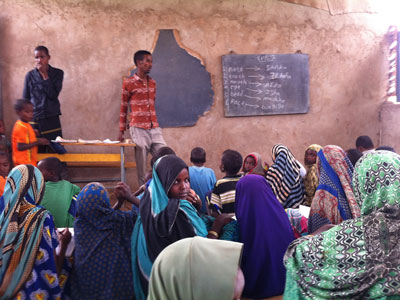About the course
Participants through six online self-paced modules will develop basic theoretical knowledge around the fundamentals of coordination and education cluster, humanitarian programme cycle and education cluster strategies, basic coordination practical skills on effective education cluster meeting and presentation. In addition, participants will strengthen basic information management competencies on folder, file and education cluster contact list management, education cluster monitoring tool and analysis and visualization.
Learning objectives
Participants by the end of the course will be able to:
-
Explain and describe common challenges and benefits of coordination in emergency responses and cluster approach
-
Describe key education cluster work aspects, including criteria for cluster activation, core functions, cluster structure and governance, core principles of coordination and mixed setting and refugees’ responses
-
Describe key components of the Humanitarian Programme Cycle (HPC) and inter-cluster processes as Humanitarian Needs Overview (HNO) and Humanitarian Response Plan (HRP)
-
Describe key aspects and core principles of Education Cluster Strategies and why are important to lead and coordinate cluster partners
-
Effectively plan and facilitate education cluster meetings and present
- Manage shared folders and files, including education cluster contact list, applying basic excel skills
- Manage and populate education cluster monitoring tool, applying basic excel skills to analyze and visualize information
The online course responds to competency needs identified in the INEE Competency Framework that is built around the INEE Minimum Standards. In particular the course is most closely linked to the Coordination Competency Domain.
Audience
The main target audience are current and potential Cluster Coordinators and Information Management Officers, Cluster partner staff supporting national and/or sub-national coordination, and national government counterparts, including Ministry of Education (MoE). The course could be relevant for education cluster partners, national government officials, Cluster Lead Agency senior management, donors, education development actors, UNHCR colleagues and private sector.
Length
Course length: 10hr.
Six online self-paced modules to be completed in 8 weeks period since participants register and start the course.
Structure
Six online self-paced modules with overview and inspirational videos, readings, quiz/exercise and online discussion.
-
The Fundamentals of Coordination and Education Cluster – 2hr 30min (two overview videos of 20min, three inspirational videos of 10min, readings and additional tasks/readings of 1hr 30min, check with quiz and contribution to online discussion of 30min)
-
The Humanitarian Programme Cycle and Education Cluster Strategies – 2hr 30min (two overview videos of 20min, one inspirational video of 10min, readings and additional tasks/readings of 1hr 30min, check with quiz and contribution to online discussion of 30min)
-
Effective Education Cluster Meeting and Presentation – 1hr 30min (two overview videos of 20min, one inspirational video of 10min, readings and additional tasks/readings of 30min, check with quiz and contribution to online discussion of 30min)
-
Folder, Files and Education Cluster Contact List Management -1hr 30min (two overview videos of 20min, check with exercise of 1hr 10min)
-
Education Cluster Monitoring Tool – 1hr (one overview video of 10min, check with exercise of 50min)
-
Analysis and Visualisation – 1hr (one overview video of 10min, check with exercise of 50min)
Contact details
Global Education Cluster, Capacity Development: clustercoreskills@gmail.com
